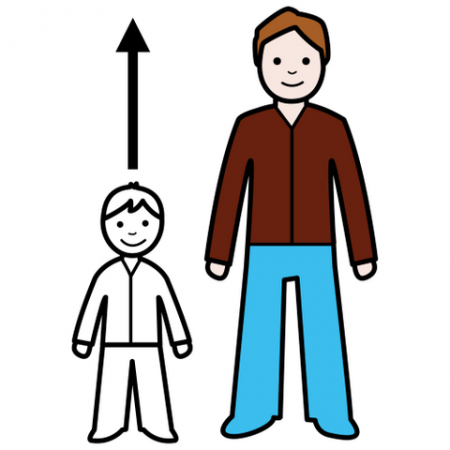
Insecurity is known as the feeling or perception of the absence of security that an individual or a social group perceives with respect to their image, their physical and / or mental integrity and their relationship with the world.
There are various causes and environments where you can refer to insecurity ...
Emotional insecurity
For instance, the perception of insecurity is usually intimately linked to the psyche and mental state of an individual. According to their experiences, experiences, relational environment and personality aspects, an individual can feel more or less secure in front of the world regarding their image, their physical and mental characteristics and their identity. It is usually considered that those people who are more introverted or reserved with respect to their public image are those who suffer from some disorder of insecurity or low self-esteem, for example, in terms of their physical appearance or, for example, in relation to certain elements of their personality and / or or way of thinking. However, many psychologists also interpret that an overconfident public image can intimately hide a state of disagreement or insecurity with oneself.
It should be noted that in many cases this insecurity can lead to complex emotional states such as paranoia, excessive shyness that prevents relating to the environment or directly total social isolation. The greater the insecurity in this sense, the greater the isolation to which the person suffering from it is subjected.
Origins of emotional insecurity
Without exceptions, specialists indicate that the lack of security in this aspect has its beginning during the childhood of the person and as a consequence it will develop various defense mechanisms to defend itself against it, meanwhile, these mechanisms will emerge every time the person person feels threatened and they will form a network about the individual that will later be difficult to unravel.
How to overcome emotional insecurity
There are no absolute recipes, however, psychotherapy It is one of the most effective alternatives when it comes to combating emotional insecurity. The therapist, through daily encounters with the patient, will bring him face to face with his insecurities and in this way, by facing them and recognizing them without hiding behind psychological mechanisms, he will be able to overcome them little by little.
Crime, the main source of social insecurity
Secondly, In a social group, insecurity is often the product of an increase in the crime and crime rate, and / or of the malaise, mistrust and violence generated by the fragmentation of society. .
The crime is simply the violation of the law in force in a state of law and that can manifest itself in various ways, although violence is very present in all of them.
Armed robbery, kidnapping, rape, are some of the most common crimes that human beings can face and that of course exacerbate our sense of insecurity, that is, they are closely linked to the experimentation of insecurity. When in a society there is a proliferation of cases of sexual attacks, robberies, among others, there will be a constant state of alert among the inhabitants and of course a lot of fear.
The other side: security
On the contrary, security could be defined as the state of calm, defense and protection in a society or in a group of citizens that, consequently, leads to a sense of common well-being. In turn, the concept of citizen security can also refer to the practices of protection and defense of citizenship by the State or the government, in order to transform an unsafe or violent scenario into a socially harmonious one.
Globalization, the main current trigger of insecurity
In recent decades, as a result of the impact of globalization on the economic, political, social and cultural order, many societies in the world have been affected and fragmented. The cultural diversity and migratory movements that are a result of these new scenarios have often contributed to creating environments where minority groups grow and marginalization increases. There is no longer a single social group belonging to a nation or region, but multiple groups emerge in various spaces, stimulating the lack of geographical and social belonging and encouraging suspicion, mistrust and the feeling of insecurity. In turn, developing countries have been affected by the excessive economic growth that favors certain sectors of the population and disadvantages large majorities mired in hunger and poverty. The lack of education, containment and resources leads broad social sectors to situations of alienation and violence that, in sum, contribute to the feeling of insecurity on the part of society as a whole.









